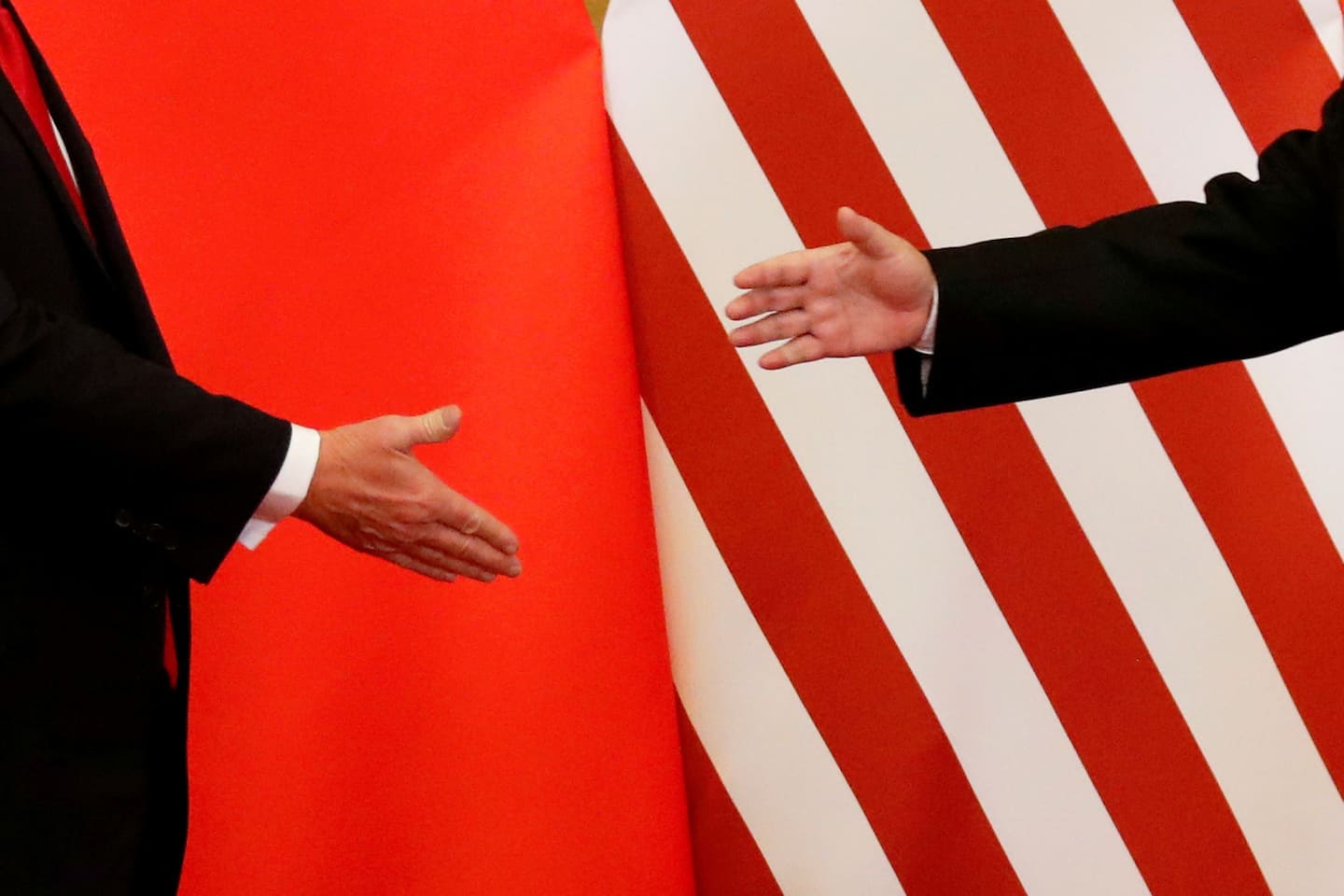The China legacy Trump leaves Biden

The outgoing U.S. diplomat went on to enumerate his administration’s role in combating unfair Chinese trade practices, rallying to the cause of Hong Kong’s protesters, spotlighting Beijing’s abuse of minority Uighurs in Xinjiang, attacking Chinese influence operations within the United States, countering the advance of Chinese tech companies in Europe, confronting Chinese expansionism in the South China Sea and strengthening regional alliances in Asia implicitly aimed at countering China.
“The Trump Administration changed the global conversation on China,” Pompeo tweeted the next day. “We exposed the Chinese Communist Party’s hostility to the free world and built out coalitions to push back on Beijing’s bad behavior.”
Some of Pompeo’s declarations of triumph don’t stand up to scrutiny. But he’s unquestionably right that, over the course of the Trump presidency, the global conversation on China shifted.
That’s thanks in part to the deepening authoritarian rule of Chinese President Xi Jinping over the past decade. But it’s also a reflection of the Trump administration’s overt hawkishness toward Beijing, armed with the conviction that the work carried out under previous administrations to help integrate China into the global economy had come at too ruinous an economic and political price for the United States. Now, few experts and policymakers in the West or elsewhere in Asia harbor any hope for China’s liberalization. Instead, they all talk of strategic competition and a systemic rivalry between China and the United States.
On their way out the door, President Trump and his allies are tightening the screw. Last week, Pompeo threw out the rules prohibiting formal contacts between U.S. officials and representatives of Taiwan, an island democracy that China claims as part of its territory. In recent days, the Trump administration also issued a sweeping ban on imports of Chinese cotton and tomato products from Xinjiang and notified suppliers of Chinese telecom giant Huawei, including chip manufacturer Intel, that their licenses to sell to the Chinese firm would be revoked.
Even in Beijing, analysts see these moves as part of a domestic power play in Washington as the departing administration hopes to box in its successor. “The Trump administration’s final madness will squeeze the room for a détente in China-U.S. relations, increase the cost for a policy adjustment under Biden and rally more partisan consensus to restrain the Biden administration from taking possible actions to ease tensions with China,” wrote Zhang Tengjun, an assistant research fellow at the China Institute of International Studies.
There are other reasons for skepticism about Trump’s approach. For all his eagerness to unleash a trade war that was going be “easy” to win, Trump appears to have lost badly. A recent Bloomberg analysis unpacked how the U.S. trade deficit with China is currently larger than what it was in 2016, no matter Trump’s vow that he would rapidly reverse the imbalance. U.S. companies and consumers largely footed the bill for rounds of tariffs Trump slapped on Chinese goods.
In the wake of the pandemic, economic data now shows China growing faster than any other major economy. For all his confrontation and bluster, Trump will bequeath “a China that does not seem diminished, at least superficially, in economic health or international stature,” my colleagues recently reported. “Xi … recently struck a bullish tone during his New Year’s Eve address, when he declared he was ‘proud of his great motherland’ and the sacrifice and unity his countrymen displayed to quickly beat back the coronavirus through strict lockdown measures and an all-hands mobilization of medical and manufacturing workers.”
Last week, the Trump administration declassified most of a secret 10-page document written by White House officials in 2018. It laid out a blueprint for U.S. policy in Asia and a summary of perceived challenges that prioritized the threats posed by China. Critics noted that Trump himself failed to further progress toward the goals laid out in the strategy document, including cultivating deeper relationships with Asian partners and thwarting China from establishing new “illiberal” spheres of influence.
“Through inattention, rhetoric largely devoid of strategy, and policies and behaviors that have eroded the confidence American allies and partners have in Washington’s credibility and reliability, Trump has profoundly undermined the historical leadership role that the United States has played in the Indo-Pacific region during and since the Cold War,” wrote Paul Heer of the Center for the National Interest.
Whether any U.S. administration can reclaim that sense of primacy is another matter. The turbulence of American political life and the domestic toll of the coronavirus pandemic sidelined the Trump White House’s aspirational grand strategy. “In hindsight, this bold vision for U.S. foreign policy failed to take account of the depth of domestic division and dysfunction hampering America’s ability to advance its interests abroad,” wrote Rory Medcalf of the Australian National University.
Read more:






